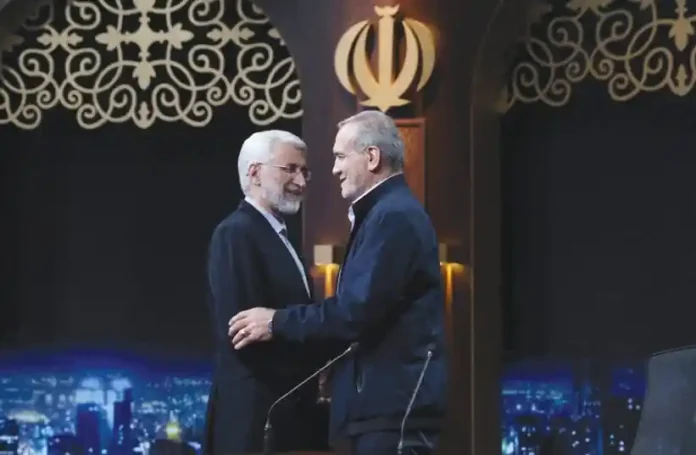Tehran, July 6, 2024 — In a significant political shift, Masoud Pezeshkian, a moderate candidate, has emerged victorious in Iran’s run-off presidential election, pledging to open the nation to the world and deliver long-awaited freedoms to its people.
The interior ministry announced his victory on Saturday following a closely contested race against hardline former nuclear negotiator Saeed Jalili.
Pezeshkian, the sole moderate among the original four candidates, secured a majority of the votes in Friday’s election, which saw a participation rate of around 50%. His win is seen as a pivotal moment for Iran, potentially signaling a more pragmatic approach to both domestic and foreign policy.
Celebration and Skepticism
In the wake of the election results, jubilant supporters of Pezeshkian took to the streets across Iran. Videos on social media showed celebrations in many cities and towns, with people dancing and motorists honking their horns in joy. In Pezeshkian’s hometown of Urmia, residents handed out sweets in the streets.
Despite the widespread celebrations, many Iranians remain skeptical about Pezeshkian’s ability to fulfill his campaign promises. As a former health minister, he has publicly stated his reluctance to confront Iran’s powerful clerical and security establishment, leading some to doubt his potential for significant reform.
“I did not vote last week but today I voted for Pezeshkian. I know Pezeshkian will be a lame duck president but still he is better than a hardliner,” said Afarin, 37, a beauty salon owner in Isfahan.
Low Turnout Reflects Discontent
The election, held to find a successor to Ebrahim Raisi after his untimely death in a helicopter crash, saw historically low voter turnout.
Over 60% of Iranian voters abstained from the June 28 ballot, reflecting growing public discontent over economic hardships and restrictions on political and social freedoms.
This trend of low turnout continues, with only 48% of voters participating in the 2021 election that brought Raisi to power, and 41% in the March parliamentary election.
The low participation rate is seen by critics as an indication of eroding support for the clerical rule amidst increasing economic struggles and social restrictions.
A New Era or More of the Same?
While Pezeshkian’s election is unlikely to dramatically alter Iran’s core policies, especially regarding its nuclear program and support for militia groups in the Middle East, it could influence the tone of the nation’s domestic and foreign policy.
Analysts suggest that Pezeshkian’s victory might promote a more pragmatic foreign policy, ease tensions over stalled nuclear negotiations with major powers, and improve prospects for social liberalization and political pluralism.
However, the president’s role remains limited, with the Supreme Leader Ayatollah Ali Khamenei holding ultimate authority on key state matters. The new president will, however, play a role in selecting Khamenei’s successor, a decision that could shape Iran’s future direction.
Regional and International Implications
Pezeshkian’s presidency comes at a time of escalating tensions in the Middle East, including the ongoing conflict between Israel and Iranian allies Hamas in Gaza and Hezbollah in Lebanon. Additionally, Western nations continue to pressure Iran over its advancing uranium enrichment program.
Both Pezeshkian and his rival Jalili had vowed to address Iran’s struggling economy, which suffers from mismanagement, state corruption, and the impact of sanctions reimposed by the United States after it withdrew from the 2015 nuclear deal in 2018.
As Iran’s new president, Pezeshkian faces the formidable challenge of navigating these complex issues while striving to meet the aspirations of a populace eager for change and greater freedoms.
This article was created using automation technology and was thoroughly edited and fact-checked by one of our editorial staff members

